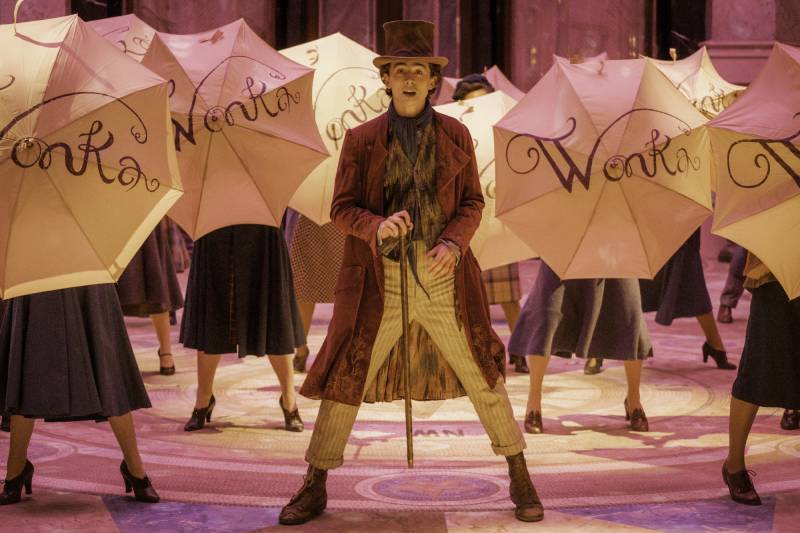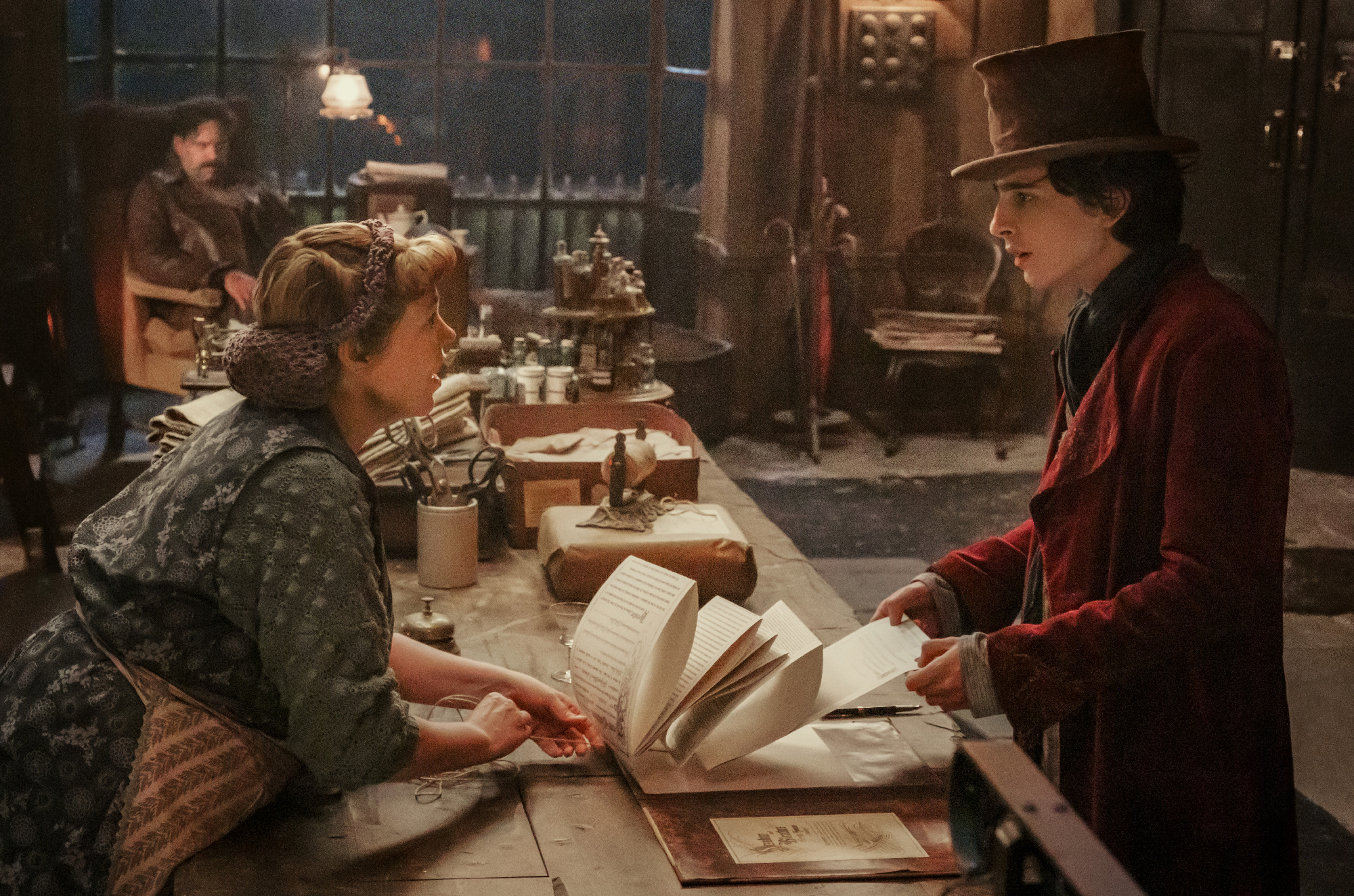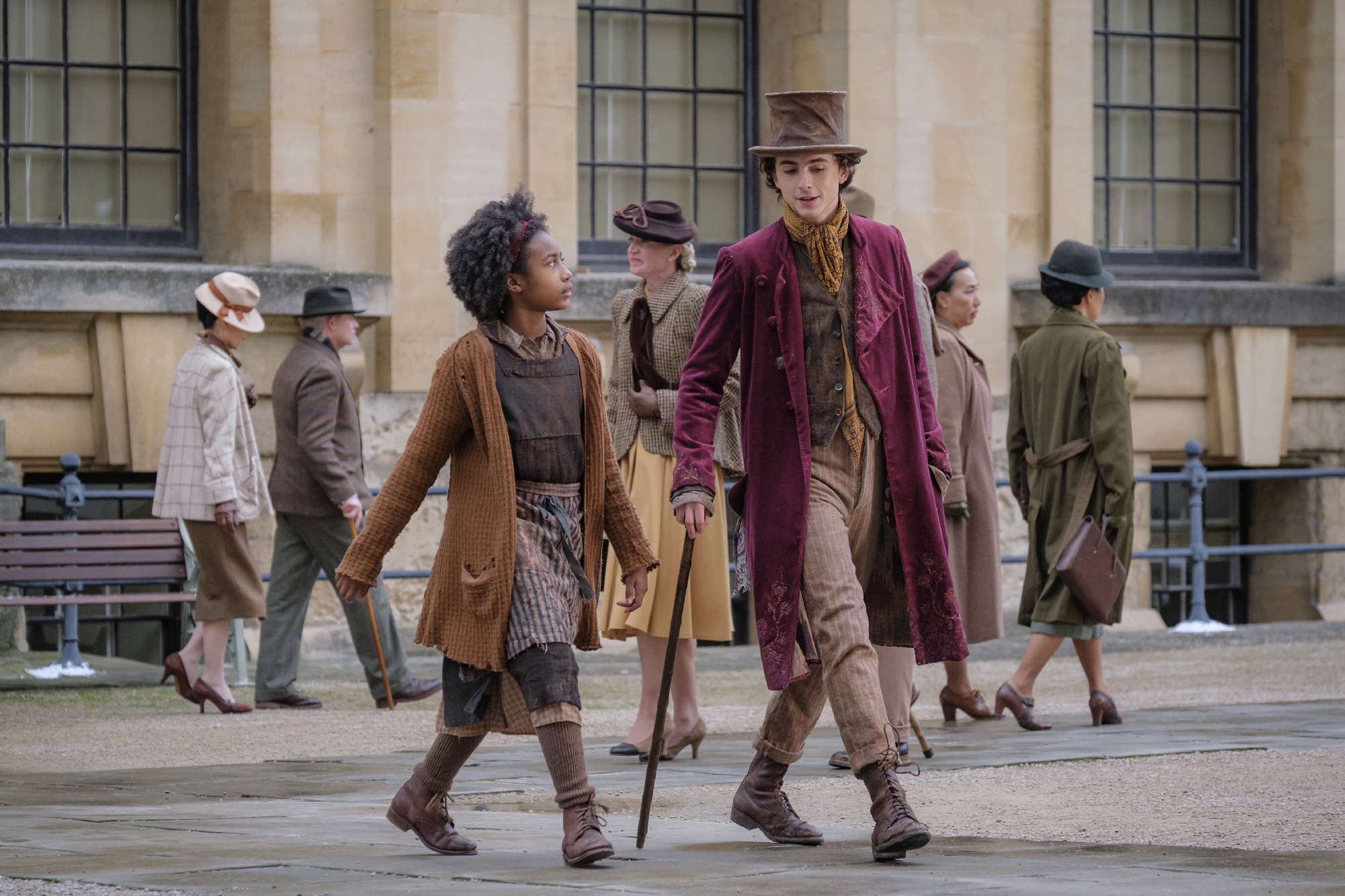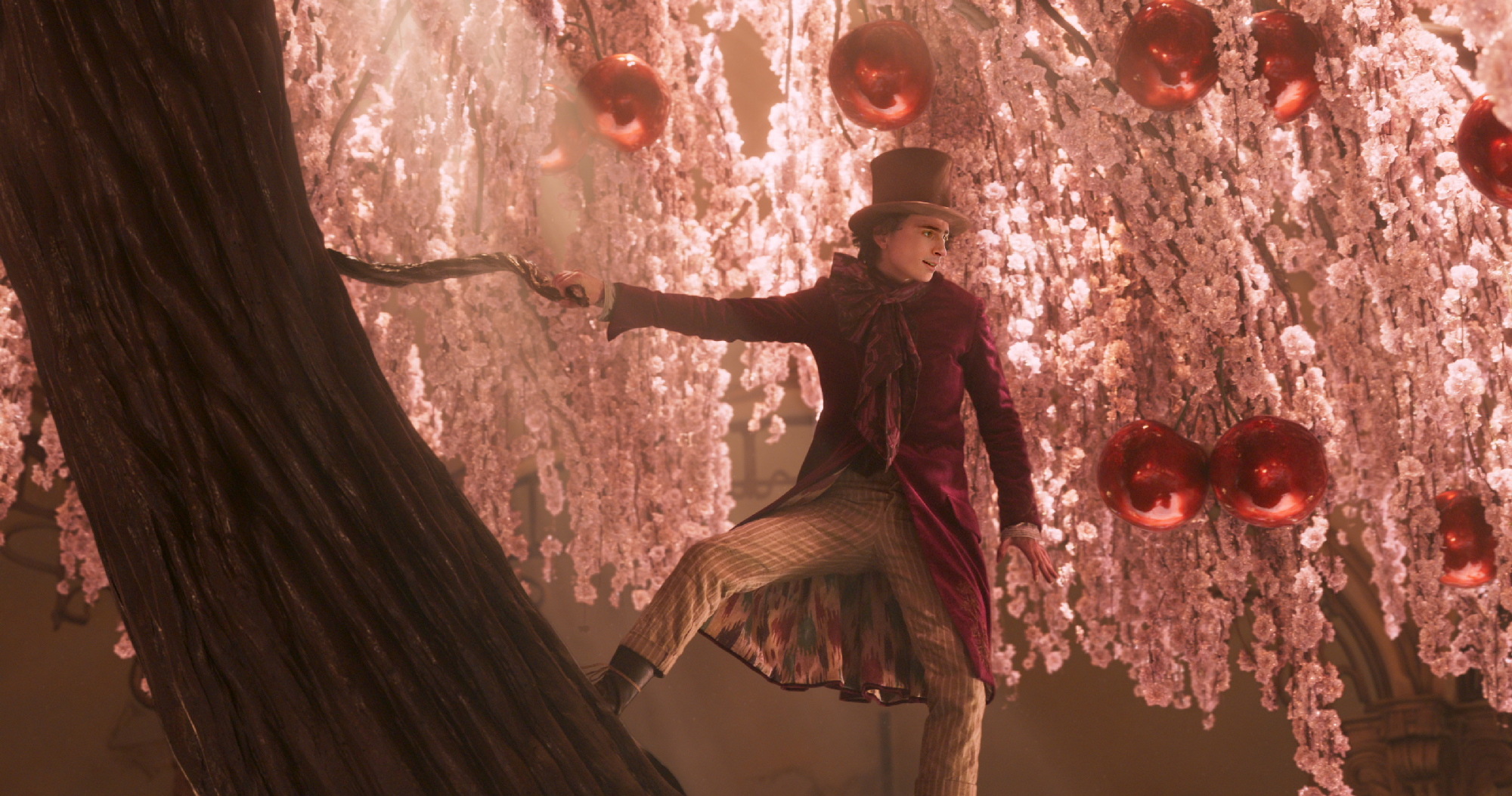From a child’s perspective, there is no higher use for the application of magic than conjuring candy out of the air. In and of itself, this first law of speculative metaphysics, which I just coined, makes Wonka an irresistible film for children.
A Surprisingly Sweet ‘Wonka’ Dodges Dahl’s Bitterness

In addition to the expected superficial pleasures, writer-director Paul King’s original musical prequel to Roald Dahl’s Charlie and the Chocolate Factory (1964) force-feeds a theme that is perennial catnip for youngsters: the unquenchable thirst for self-invention and reinvention.
The movie opens with the eager, idealistic, orphaned magician-waif Willy Wonka (Timothée Chalamet) arriving by boat in the big city — London? Probably, because the place is chockablock with English actors, but then why is Willy clearly American? — in a textbook example of the (fictional) intrepid young protagonist making their way through the mystifying, unfair and immoral adult world.
In other words, Wonka (opening Friday, Dec. 15) is perfectly swell holiday fare for the little people in your vicinity. They may be restless in places where there’s too much plot and chitchat and not enough fantasy, but that’s why God and Santa put candy counters in theaters.

Although I am a fervent believer that a great fairy tale requires a dash of terror (the child grows from having gone through something on the bumpy road to a happy ending), I appreciate that King (Paddington 2) has whisked away the cruelty that colored Dahl’s books. Consider the lodging where a helpful stranger (Tom Davis doing a pleasing tongue-in-cheek riff on Oliver Reed-as-Bill Sikes) directs the sovereign-less Wonka on his wintry first night. It turns out to be a laundry of indentured servitude operated by Mrs. Scrubbit (Academy Award-winner Olivia Colman having a ball, in part because King didn’t give her terrible teeth and an impenetrable accent).
Dickens would laugh at this establishment, as do we, which is more Days Inn than Dungeons ‘R’ Us. Jim Carter (Downton Abbey) brings dancehall wit and gusto to his role as leader of the captive, singing washing crew, which includes young Noodle (Calah Lane), who becomes Willy’s guide, accomplice and friend.
I delayed putting “singing” and “Willy” in the same paragraph as long as I could, but the time has come to remind moviemakers of the second law of speculative metaphysics: Don’t begin your movie with a non-musical actor singing. Yes, Anne Hathaway won an Oscar for croaking her way through Les Misérables. Yes, Leos Carax put Adam Driver front and center for the extended music video that opened Annette. And yes, Timothée Chalamet succeeds in overcoming his uninspiring entrance with a typically generous, game and sporting performance.

I am reluctant to critique Chalamet’s voice — if Putin has kompromat on me, it involves karaoke — which is thin but not amateur-hour bad. I do lament Hollywood’s decades-long insistence on casting (supposedly) bankable dramatic stars as musical leads. The upside is that countless high school seniors in drama clubs around the world will say, “If Chalamet is a household name with a voice like that, imagine how far I can go!”
Neil Hannon’s songs are serviceable and often clever, but they don’t lodge themselves in the memory. And King, regrettably, gives only a couple of them the glorious musical-fantasy treatment that is the third law of speculative metaphysics: Everyday people on the street and trolley turn into chorus singers, random strangers coalesce in a choreographed dance, and the real world dissolves into a candy-cane snow globe of harmony and happiness. (Barbie boasts more flamboyant musical numbers, for the record.)
And yet, for all my carping, I enjoyed Wonka. Willy’s relentless crusade to open his own chocolate shop — to validate his late mother’s support rather than out of an innate entrepreneurial drive, so venture capitalists need not apply — never succumbs to corn-syrup treacle. The heartstrings-pulling sequences, which don’t especially work, are blessedly brief. Hugh Grant (as the movie’s lone Oompa-Loompa, and who needs a battalion of those wee folks when you have Hugh Grant?) shows up at the exact perfect moment to inject a shot of acerbic pomposity, like Bénédectine poured in a milk chocolate truffle, into Willy’s earnest endeavors.

Unlike Pixar’s movies, which provide ample jokes that sail over the kids’ heads and keep the adults alert and entertained, Wonka doesn’t set out to be either hip or politically au courant. The villains of the piece are a chocolate cartel comprised of three purportedly independent merchants, and the principles of capitalism (other than bribing the police chief) aren’t satirized but ignored altogether. (Barbie aced that assignment, thank you.)
And it’s OK that Wonka aspires to be a simple crowd-pleaser whose implicit message is to stay true to your dreams and your friends. The movie works just fine as a feel-good family film at a moment when the future is not just unwritten but uncertain. Is it an instant addition to the shelf of timeless holiday classics? It needed a bit more magic to tip the scales decisively, but I wouldn’t bet against Willy in the long run. Even without fast-forwarding through his songs.

‘Wonka’ opens in theaters on Friday, Dec. 15, 2023.

